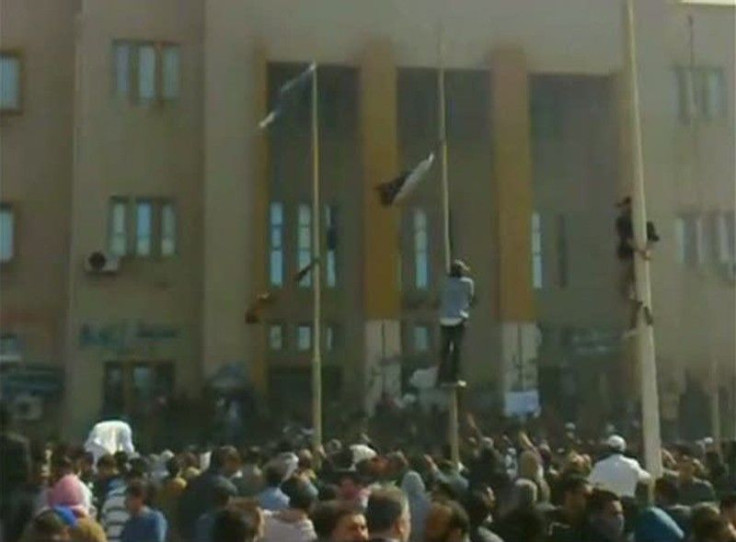All Eyes Turn To Internet In Libya, Bahrain

Since the Egyptian government shut off the Internet during the protests that led to the fall of President Hosni Mubarak, eyes have turned to Libya and Bahrain, both of which have had some of the worst unrest in the last week.
Libya lost much of its connectivity on Feb. 18. The country's Internet activity returned at about 1 a.m. Eastern time after being out for about seven hours. James Cowie, chief technology officer of Renesys, an information technology consultancy, said the question is whether the Internet Curfew repeats itself again tonight. If it does, at about 6 p.m. Eastern - or at about 1 a.m. Tuesday morning in Libya - the Internet should go dark again.
Meanwhile, Bahrain's traffic was lower than usual, but the government there said it was because the connections were overwhelmed, according to a report from Arbor Networks, a company which monitors networks.
Cowie noted that the Libyan government can shut off the Internet because there are so few providers of telecommunications in the country, and there is only one major fiber optic connection. Libya Telecom & Technology is the country's largest Internet Service provider, and its chairman is Muhammad al-Gaddafi, the son of Muammar al-Gaddafi, Libya's current leader.
Arbor Networks noted that Libyan Internet traffic dropped off over the weekend, and afterwards was still at below-normal levels. Dr. Craig Labovitz, chief scientist at Arbor, said Libya essentially vanished from the Internet Friday, and came back on Saturday and disappeared again before coming back on line.
Cowie said that while it is easy to conclude that there is deliberate government interference, one thing to remember is that the number of Internet connections and providers in Libya is so small that disruptions can happen accidentally. The power in Libya is famously unreliable, he said. If I saw that pattern anywhere else like that in the world I might think they had power supply problems. That said, given that the outages were at night, a power issue seems unlikely.
Bahrain, by contrast, has several fiber optic connections and a diversity of providers. Cowie said it is perfectly possible that Bahrain was overwhelmed with traffic with millions of people suddenly paying attention to a very small country.
In addition, Bahrain has promoted itself as a center of technology. They have a lot riding on their image as a communications center, Cowie said. If the government were to act against the telecoms and Internet service providers, the backlash from international businesses would be fierce.
This doesn't rule out an attempt to cut off some of the traffic or restrict it, but it does put the Bahraini government in a more difficult position if it were to try a kill switch.
To contact the reporter responsible for this story call (646) 461 6917 or email j.emspak@ibtimes.com.
© Copyright IBTimes 2025. All rights reserved.




















